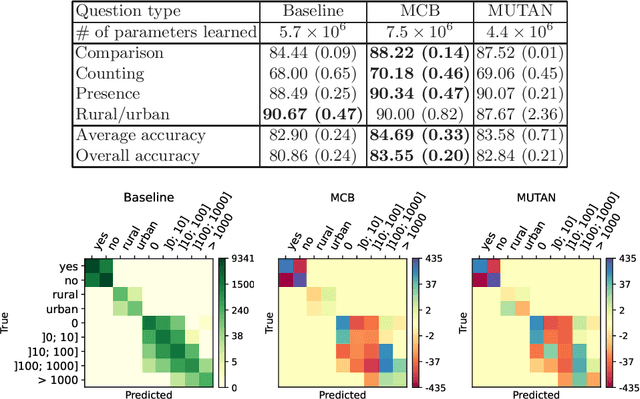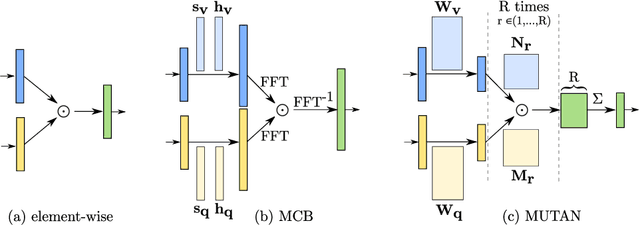How to find a good image-text embedding for remote sensing visual question answering?
Paper and Code
Sep 24, 2021



Visual question answering (VQA) has recently been introduced to remote sensing to make information extraction from overhead imagery more accessible to everyone. VQA considers a question (in natural language, therefore easy to formulate) about an image and aims at providing an answer through a model based on computer vision and natural language processing methods. As such, a VQA model needs to jointly consider visual and textual features, which is frequently done through a fusion step. In this work, we study three different fusion methodologies in the context of VQA for remote sensing and analyse the gains in accuracy with respect to the model complexity. Our findings indicate that more complex fusion mechanisms yield an improved performance, yet that seeking a trade-of between model complexity and performance is worthwhile in practice.
 Add to Chrome
Add to Chrome Add to Firefox
Add to Firefox Add to Edge
Add to Edge